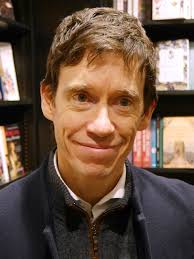Rory Stewart: The Political Journey of a Modern Leader

Introduction
Rory Stewart has emerged as a significant figure in contemporary British politics, known for his articulate views and commitment to public service. With a career that spans academia, government, and literature, Stewart’s multifaceted background has positioned him as a leading voice on various pressing issues, especially regarding diplomacy and governance. His recent undertakings reflect a renewed focus on community engagement and political transparency, making his story particularly relevant in today’s political climate.
Background and Early Career
Born in 1973, Rory Stewart was educated at Edinburgh and Oxford University. His early career as a diplomat in Iraq during the post-war reconstruction period gave him firsthand experience of governance in challenging environments. This unique perspective has influenced his views on the complexities of international relations and domestic policy in the UK. Stewart later transitioned to politics, serving as a Conservative MP and holding several ministerial roles, including Minister of State for International Development.
Recent Developments
In 2023, Rory Stewart announced his candidacy for the leadership of the local community projects aimed at revitalising towns across the UK. His passion for grassroots engagement has resonated with constituents, particularly in the wake of the COVID-19 pandemic, which has left many communities fractured and in need of support. Stewart’s approach involves collaborations with local leaders and stakeholders to address issues such as infrastructure, education, and mental health services. He argues that effective governance must start at the community level, empowering citizens to play a role in shaping their futures.
Public Perception and Influence
Stewart has gained a reputation for his unorthodox approach, often diverging from party lines to advocate for pragmatic solutions. His books, including ‘The Marches’ and ‘How Not to Be a Politician’, reflect on his experiences and critiques of contemporary political practices. Through his public speaking engagements and social media presence, he continues to engage a wide audience, advocating for political reform and transparency.
Conclusion
Rory Stewart’s journey from diplomat to politician illustrates the evolving landscape of political leadership in the UK. As he champions local projects and community involvement, his vision reflects a growing desire among voters for authentic and accountable governance. Moving forward, Stewart’s influence will likely play a critical role in shaping not just local dynamics but also national discussions on political accountability and civic engagement. As the political landscape continues to shift, Stewart’s contributions will be essential in steering the conversation towards a more participative democracy.









